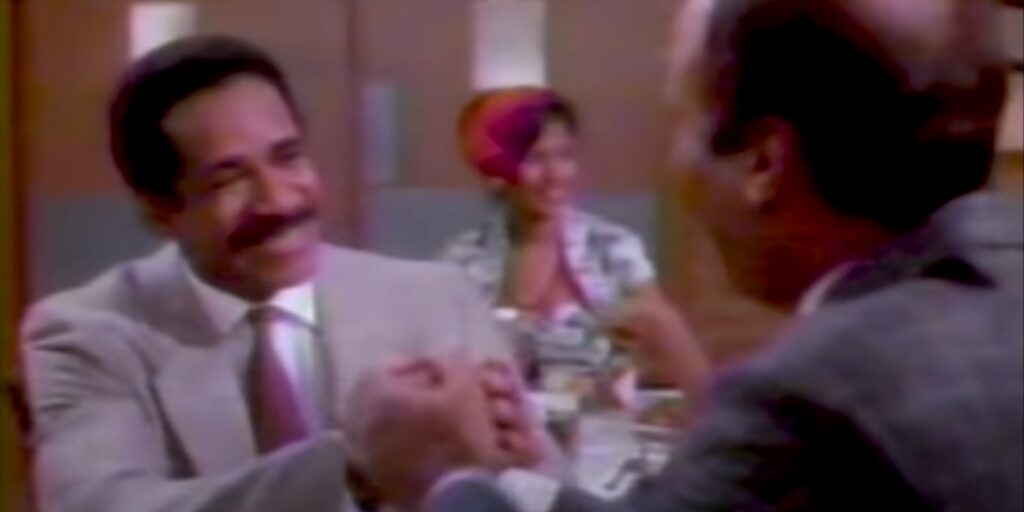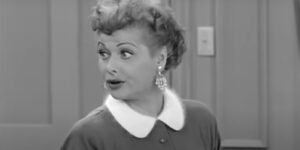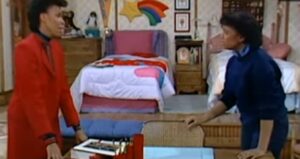
Today, we look at how Frank’s Place was one of the few shows to actually tackle colorism.
This is “All the Best Things,” a spotlight on the best TV episodes, movies, albums, etc.
This is a Year of Great TV Episodes, where every day this year, we’ll take a look at great TV episodes. Note that I’m not talking about “Very Special Episodes” or episodes built around gimmicks, but just “normal” episodes of TV shows that are notable only because of how good they are.
All this month, I’ll be spotlighting great Black-centric TV episodes.
Frank’s Place was a great sitcom (that I recently discussed with Drew Mackie and Glen Lakin on their awesome podcast, Gayest Episode Ever) created by WKRP in Cincinnati‘s Hugh Wilson, starring former WKRP star Tim Reid (who also executive produced the show with Wilson) as Frank Parrish, an Ivy League professor who discovers that his long-estranged father has died, and Frank has inherited his father’s restaurant in New Orleans, Chez Louisiane, a cultural institution in the neighborhood. Frank plans to just sell it (initially to some developers, but chooses to instead sell directly to the workers of the restaurant), but due to a “curse,” Frank decides he will just move to New Orleans and run the restaurant himself.
The basic setup for the series was Frank’s culture shock coming from he Northeast down to New Orleans, and running a business he doesn’t know anything about. It also tackled a number of serious social issues.
In the fifth episode, “Frank Joins the Club,” Frank is wooed by Ozell Dryer, a high-ranking member of a men’s club (played by Ron O’Neal, of Superfly fame) as a possible new member. His Ivy League background makes him a compelling new candidate, but Frank isn’t sure why everyone else is a bit put off about the group, which is a Black men’s club, so Frank figured it would be fine to join them.
The issue is that it is a men’s club that only brings in LIGHT-skinned Black men. Frank, as a darker skinned Black men would be one of the first dark-skinned members of the club, and his background is what made him such a strong candidate to Dwyer to possibly “break the color barrier” of the club.
Frank, of course, is disgusted by the colorism, which is not something that gets discussed very often on TV, the idea that light-skinned Black people have historically discriminated against dark-skinned Black people (and White people are more likely to accept light-skinned Black people, and society typically treats light-skinned Black women as more physically attractive).
Frank, echoing some of Tim Reid’s own experiences, explains how he is used to being the first Black man at a school, or the first Black man at a company, but he’ll be damned if he’s going to be the first Black man in a Black men’s club!
Instead, he joins a different men’s club, and in the process, learns a bit more about his father, who he really didn’t know at all.
It’s a well-told, touching episode, and its boldness in discussing colorism (the “Paper bag test,” where you “pass” if you’re lighter than a brown paper bag, is reference) was very appreciated.
The show was such a great sitcom, it’s such a shame that it only lasted a single season.
Okay, if I’m going to have 332 more of these (and 25 more this month), I could use suggestions, so feel free to email me at brian@poprefs.com!










There was also an episode of HOMICIDE: LIFE ON THE STREET that addressed the subject of colorism, where Megan Russert sets Al Giardello up with one of her friends, only for Megan’s friend to reject Giardello because he’s darker-skinned than her. The subplot was drawn from Yaphet Kotto’s own dating experiences. I’ve always remembered it because that’s where I first learned that colorism was a thing.
I’d give the episode title, but I can’t recall it offhand and I don’t have access to my HLOTS episode guides right now. It would’ve been during S3 or 4, after Megan Russert was introduced as the lieutenant of the other shift, but before she was demoted down to detective on the show.
Sad there was not a second season, although it was a strange time for CBS and there almost was.
It was a down time for with all their hit shows but Muder She Wrote in decline, and most would be gone in few seasons.
That fall they launched 9 shows(only Jake and the Fatman would be a success) Among them were 4 critically acclaimed shows, all struggling in the ratings. Come May CBS would renew all 4 including Frank’s Place.
However, the next season was a strike delayed season, and by the time it was settled, CBS had reversed course and canceled Frank’s Place.
@John B Trumball: I think the H:LotS episode was “Nothing Personal”, from season 3. (It was supposed to be the 9th episode, but due to NBC screwing around with the episode order, it aired 18th in the season.)